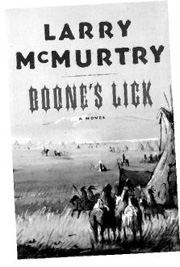PUNDITS SURPRISED by Al Gore’s populist stump speeches must have short memories. For not only did the vice president’s late father, Albert Gore Sr., wring every ounce of value from the populist approach during his four decades in Congress, but Al Jr. adopted a similar tack in 1988, when he made his first, unsuccessful bid for the Oval Office.
THE PRINCE OF TENNESSEE: THE RISE OF AL GORE
by David Maraniss and Ellen Nakashima (Simon & Schuster, $23)
As Washington Post journalists David Maraniss and Ellen Nakashima explain in The Prince of Tennessee, their penetrating yet still warmly perceptive biography of the man who would be our nation’s 43rd chief executive, Gore began the ’88 race by taking tough military stances. However, when his hawk talk and intellectual demeanor failed to excite Democrats, the then-39-year-old junior US senator from Tennessee smartly recast himself as a “man of the people,” emphasizing the time he’d spent as a teenager plowing his father’s farm and talking with empathy about the loss of American jobs to foreign investment. But the change of direction came too late: Gore was forced out of the campaign long before that year’s Democratic National Convention, disappointing his father, who’d once entertained his own dreams of national renown, but perhaps disappointing himself most of all. Even as a boy, Al Gore had told people, “One day, I’m going to be somebody.” Defeat of such magnitude, played out before the entire country at the very apex of his ambition, must have been difficult to swallow.
So while George W. Bush wages his 2000 presidential campaign as a pale surrogate for his father, hoping to avenge Bush Sr.’s resounding defeat by Bill Clinton in 1992, for Gore it’s personal, a chance to both explain his vision for America and recapture the sense that he is destined for greatness.
At least, that’s what I conclude from reading The Prince of Tennessee. The Al Gore portrayed in these pages (an image based on interviews or correspondence with more than 500 sources, including the subject himself) is too complex for simple psychoanalyzing. He’s a product of the best schools and the worst times. Although his family owned a home in the small town of Carthage, Tennessee, he was actually born in Washington, DC, lived most of his growing-up years (while his father pontificated on Capitol Hill) in a hotel on Embassy Row, and attended a private boys’ school called St. Albans, where he acted more adultlike than his peers. (“It’s almost unnatural for a boy to be that well behaved,” one teacher later joked.) Gore didn’t miss out entirely on childhood hijinks; the authors recount how he and some buddies once discovered an overturned Tootsie Roll truck, and that they peeled and ate the candy “until they could stomach no more.” Later, the book talks of the mental release Gore found in painting and of his youthful recklessness, especially behind the wheel of a car. More often than not, though, the future veep strove to be “the dutiful son,” inheriting from his sire an old-fashioned formality, a commitment to civil rights, and a love for vigorous debate.
IN HIS BEST-SELLING Clinton biography, First in His Class (1995), Maraniss gave readers an anecdote-stuffed tale of personal evolution rather than hard-hitting analysis of Clinton’s performance in office, and he and Nakashima bring those same priorities to this new work. Trying to place Gore in context, The Prince of Tennessee devotes just 10 pages to his vice presidency, but whole chapters to two women the authors say have served as his emotional balances: Gore’s fun-loving older sister, Nancy (who died of lung cancer), and his teenage sweetheart—later wife—Tipper. The book shows Gore as far wittier and more driven by his heart than most voters realize. It recalls his rampant self-confidence (he didn’t even bother applying to other colleges than Harvard, so sure was he of acceptance), his Watergate-era experience as an investigative journalist, his passion for environmentalism (apparently rooted in a reading of Frank Herbert’s science-fiction classic, Dune), and Gore’s decision—despite his personal opposition to the Vietnam War—to enlist in the US Army in 1970 as a way of supporting his staunchly liberal father, who was then in a hard race for a fourth Senate term and couldn’t be seen letting his son duck military service. (Gore Sr. lost anyway, forcing Al Jr. to reassess the value of government service and convincing him that it’s never wise to move too far from the political center.) Most interesting, if also most debatable, is the authors’ contention that Gore’s storied hunger and capacity for knowledge—which the candidate himself views as essential to the exercise of power—is, instead, a manifestation of his deep-seated insecurity and a need to be in control of things.
The Prince of Tennessee is an exception to the rule that political biographies must be parched and process-oriented. If Al Gore wins the office that only months ago seemed beyond his reach, this will be one of the books to which analysts turn to figure out how the hell he did it. And what kind of president he’ll be.








